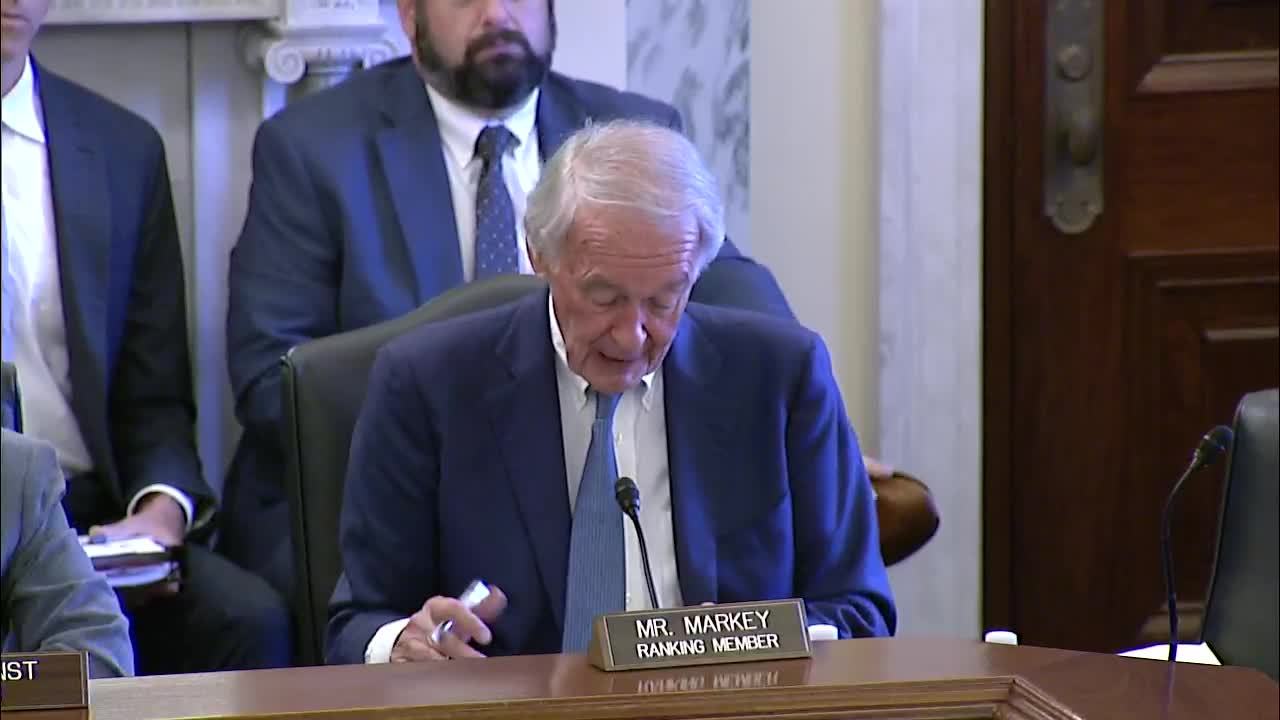Senate Committee Questions Inspector General on Student Loan Portfolio and Fraud Detection
September 10, 2025 | Small Business and Entrepreneurship: Senate Committee, Standing Committees - House & Senate, Congressional Hearings Compilation
This article was created by AI summarizing key points discussed. AI makes mistakes, so for full details and context, please refer to the video of the full meeting. Please report any errors so we can fix them. Report an error »

In a pivotal Senate Committee meeting on September 10, 2025, the nomination of William Kirk as Inspector General of the Small Business Administration (SBA) took center stage, with significant discussions surrounding the use of technology to combat fraud in federal loan programs.
Senator Husted highlighted a staggering $200 billion in fraudulent payments linked to the SBA's pandemic relief efforts, emphasizing the need for robust oversight. He pointed out that this amount could cover the grocery bills for 20 million families for a year or purchase new cars for every resident in Ohio and Michigan combined. The senator pressed Kirk on the importance of utilizing advanced technology to detect and prevent such fraud, referencing a 2020 executive order by former President Trump that authorized the use of artificial intelligence for this purpose.
Kirk responded affirmatively, acknowledging the critical role of technology in enhancing the efficiency of investigations into fraud, waste, and abuse within the SBA. He assured the committee of his commitment to leveraging all available technological tools to ensure accountability and restore public trust in government operations.
The discussions also touched on the legality of significant administrative decisions made by the previous administration, particularly regarding the potential winding down of the Department of Education. Kirk distanced himself from these decisions, stating that he was not involved in any related policy documents or proposals prior to his arrival at the Department in March.
As the committee deliberates Kirk's nomination, the focus remains on his commitment to employing technology in the fight against fraud, a pressing issue that could have far-reaching implications for the integrity of federal loan programs. The outcome of this nomination could shape the future of oversight within the SBA and influence how effectively the agency can safeguard taxpayer dollars.
Senator Husted highlighted a staggering $200 billion in fraudulent payments linked to the SBA's pandemic relief efforts, emphasizing the need for robust oversight. He pointed out that this amount could cover the grocery bills for 20 million families for a year or purchase new cars for every resident in Ohio and Michigan combined. The senator pressed Kirk on the importance of utilizing advanced technology to detect and prevent such fraud, referencing a 2020 executive order by former President Trump that authorized the use of artificial intelligence for this purpose.
Kirk responded affirmatively, acknowledging the critical role of technology in enhancing the efficiency of investigations into fraud, waste, and abuse within the SBA. He assured the committee of his commitment to leveraging all available technological tools to ensure accountability and restore public trust in government operations.
The discussions also touched on the legality of significant administrative decisions made by the previous administration, particularly regarding the potential winding down of the Department of Education. Kirk distanced himself from these decisions, stating that he was not involved in any related policy documents or proposals prior to his arrival at the Department in March.
As the committee deliberates Kirk's nomination, the focus remains on his commitment to employing technology in the fight against fraud, a pressing issue that could have far-reaching implications for the integrity of federal loan programs. The outcome of this nomination could shape the future of oversight within the SBA and influence how effectively the agency can safeguard taxpayer dollars.
View full meeting
This article is based on a recent meeting—watch the full video and explore the complete transcript for deeper insights into the discussion.
View full meeting